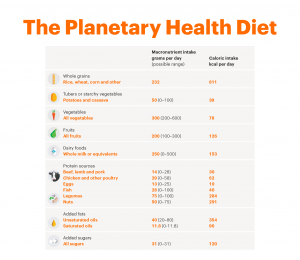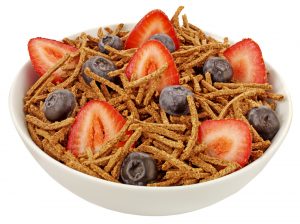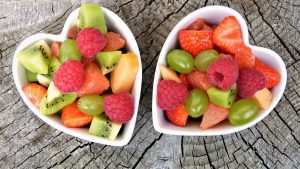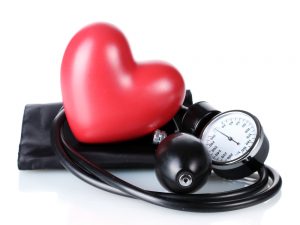Dietary Fibre and how It Benefits Our Health
Posted by Phil Heler, MD on September 23, 2019A High Dietary Fibre Intake is good for us. A plant-based diet naturally comes with a high fibre intake which is very good news
This week’s article is about dietary fibre. Last week we detailed how all our trousers and clothes are becoming a little bit tighter!! This has not gone unnoticed by retailers. As we become a little plumper, even Primark updated its sizing scales to include a 2XL for selected product areas in 2018 and River Island meanwhile recently introduced its ‘plus-size’ collection. Whilst our waistlines are quietly expanding, in general our overall dietary choices are also changing and with some rapidity. A recent body of research from a leading supermarket suggested that 21% of us now claim to be vegetarian and 7% of us are now vegan (or in other words a third of us no longer eat meat!). Vegan represents the most rapidly expanding choice.
The Eat-Lancet Report and Planetary Health Diet
About 60% of vegans and 40% of vegetarians surveyed said they had adopted the lifestyle over the past five years, with 55% citing animal welfare concerns, 45% health reasons and 38% environmental issues. People in the 18-to-34 age group were more likely to switch to veganism, with much less enthusiasm among the over-55s (you know who you are!). Plant-based diets are also being increasingly recognised scientifically as a solution for feeding an expanding global population; as seen in the ‘Eat-Lancet’ report which was published in January this year and it is known as the Planetary Health Diet (I covered this topic earlier on in the year). The good news is this would really benefit our health as well by increasing dietary fibre intake.
According to the diet recommended in the study half of each plate of food would be vegetables and fruit, and a third wholegrain cereals. Globally, the diet requires red meat and sugar consumption to be cut by half, while vegetables, fruit, pulses and nuts would be doubled! Stringent measures that might meet with some cultural resistance in the EU and U.S! These facts aside, a high intake of fruit and vegetables is good news for vascular disease by virtue of a high dietary fibre intake.
A Plant Based Diet Means a High Dietary Fibre Intake
A plant-based diet naturally comes with a high dietary fibre intake which is very good news for our health. The message for encouraging fibre intake is simple. People who eat higher levels of dietary fibre and whole grains have lower rates of non-communicable or preventable diseases (of which vascular disease is one) compared with people who eat lesser amounts. Studies and clinical trials conducted over nearly 40 years reveal clear health benefits when eating at least 25g to 29g or more of dietary fibre a day. A review published in The Lancet magazine in February this year examined 185 prospective studies and 58 clinical trials with 4635 adult participants. When they number crunched all the data from these studies there were some very clear patterns. The health benefits conferred by eating at least 25g of fibre a day conferred a 15–30% decrease in cardiovascular related mortality, and incidence of coronary heart disease, stroke incidence, type 2 diabetes, and colorectal cancer when compared with consumers with low dietary fibre intakes. Clinical trials showed significantly lower body-weight, systolic blood pressure, and total cholesterol when comparing higher with lower intakes of dietary fibre. Similar findings for whole grain intake were observed. So, what precisely is fibre?
What is Dietary Fibre?
Dietary fibre is fundamentally a good type of carbohydrate, also known as roughage, found in all plant food. There are basically two kinds of fibre, soluble or insoluble, and both are really good for us. Soluble fibre becomes a thick gel in our intestines when we digest it, which slows digestion (this also helps moderate blood sugar levels) and encapsulates fat preventing absorption (which lowers cholesterol levels). Sources of soluble fibre include oatmeal (porridge!), beans, lentils, and many fruits. Insoluble fibre meanwhile helps keep our stools soft (sorry Mum!) and regular, always a good thing! Sources of insoluble fibre include whole grains, beans, lentils, and most vegetables. Both soluble and insoluble fibre make us feel satiated, which helps us to eat less. In 2009, a study was published in the journal Diabetes Care, on over 60,000 individuals, looked at the levels of obesity among vegans, vegetarians, pescatarians, semi-vegetarians and non-vegetarians. Weight was measured as ‘Body Mass Index’ which most of us have heard of (Body Mass Index or BMI = weight in kg, divided by your height in metres squared). A healthy BMI is considered to be 20-25, 25-30 is overweight, and over 30 is obese. The results were as follows:
Diet BMI
Vegans 23.6
Vegetarians 25.7
Pescatarians 26.3
Semi-Vegetarians 27.3
Non-Vegetarians 28.8
A High Dietary Fibre Intake would help Tackle Our Obesity Crisis
The Eat-Lancet’ report mentioned in my introduction detailed a sustainable plant-based. Apart from the specific health benefits of dietary fibre the diet would certainly help tackle our obesity crisis as it allows only for an average of 2,500 calories a day. There would also be other significant spin-offs. Although few of us look at obesity from this perspective, obesity does come with a high environmental cost. A new study published in August called ‘Frontiers in Nutrition’ created a new index called Metabolic Food Waste (or MFW). This estimated the quantity of unnecessary calories we eat. This is very interesting as it also reminds us that these excess calories have a negative environmental impact by exerting more pressure on natural resources. The study estimated that the overall global impact of obesity was equivalent to 140.7 gigatons (or billion tonnes) of food waste. Much of this is associated with high energy foods (such as animal products) that are major contributors to climate change and greenhouse emissions, pressurising water resources, with high land and carbon footprints.
Are there Any Negative Outcome from a Plant Based Diet?
Plant-based diets are very promising in terms of high dietary fibre at least, but are there any possible negative outcomes regarding vascular disease? A recent study in the British Medical Journal on September 3rd, 2019 unearthed some controversial findings. This fascinating study looked at relative risk of heart disease and strokes for people who chose either a plant or meat based or fish-eating diet. The study analysed data from a major long-term research project looking at diet and health that started back in 1993. Oxford is one of several centres involved in what is known as EPIC (or the European Prospective Investigation into Cancer and Nutrition). This study from EPIC looked at 48,188 people over 18 years in a follow up study. Half of participants, recruited between 1993 and 2001, were meat-eaters, just over 16,000 vegetarian or vegan, with 7,500 who described themselves as pescatarian (fish-eating).
The pescatarians were found to have a 13% lower risk of CHD than the meat-eaters, while the vegetarians and vegans had a 22% lower risk. Good news, and to some degree what one would expect! But surprisingly those on plant-based diets had a 20% higher risk of stroke. The researchers suggested this could be linked to low vitamin B12 levels but said more studies were needed to investigate the connection. It is also important to remember that because this study has run for nearly two decades that that the typical present-day vegan or vegetarian diet today looks very different than it did a couple of decades ago. Once again, the researchers emphasised eating a wide range of foods is best, not matter what your preference. This applies to everyone as Dr Frankie Phillips, from the British Dietetic Association observed; “Meat-eaters don’t necessarily have a varied diet, because they might live on meat and potatoes for dinner every night and not have any vegetables.” Allied to this are the health risks linked to eating too much processed and red meat, which has been linked to an increased risk of bowel cancer.




